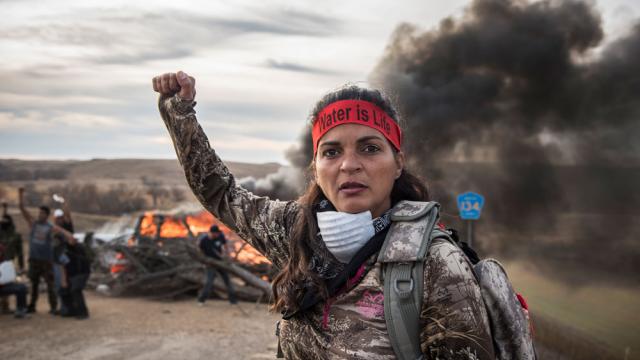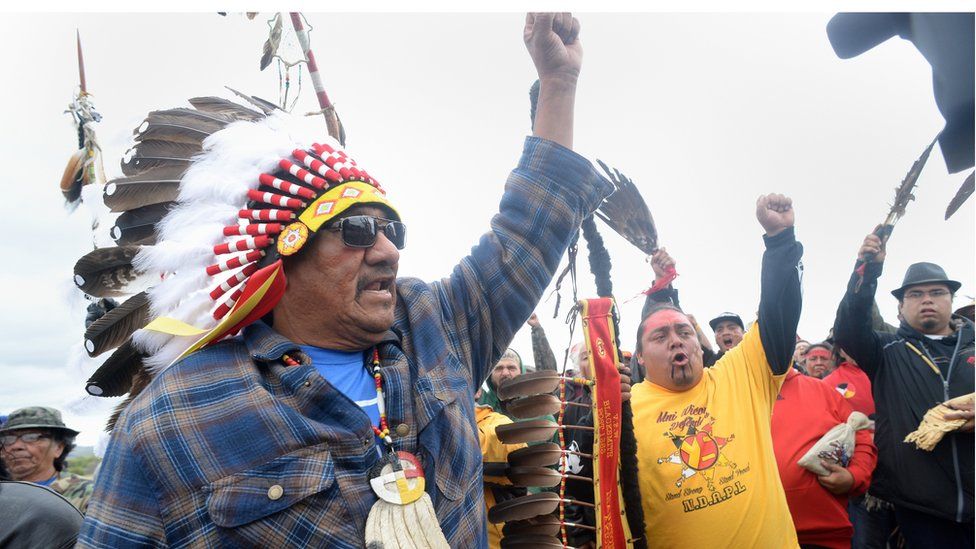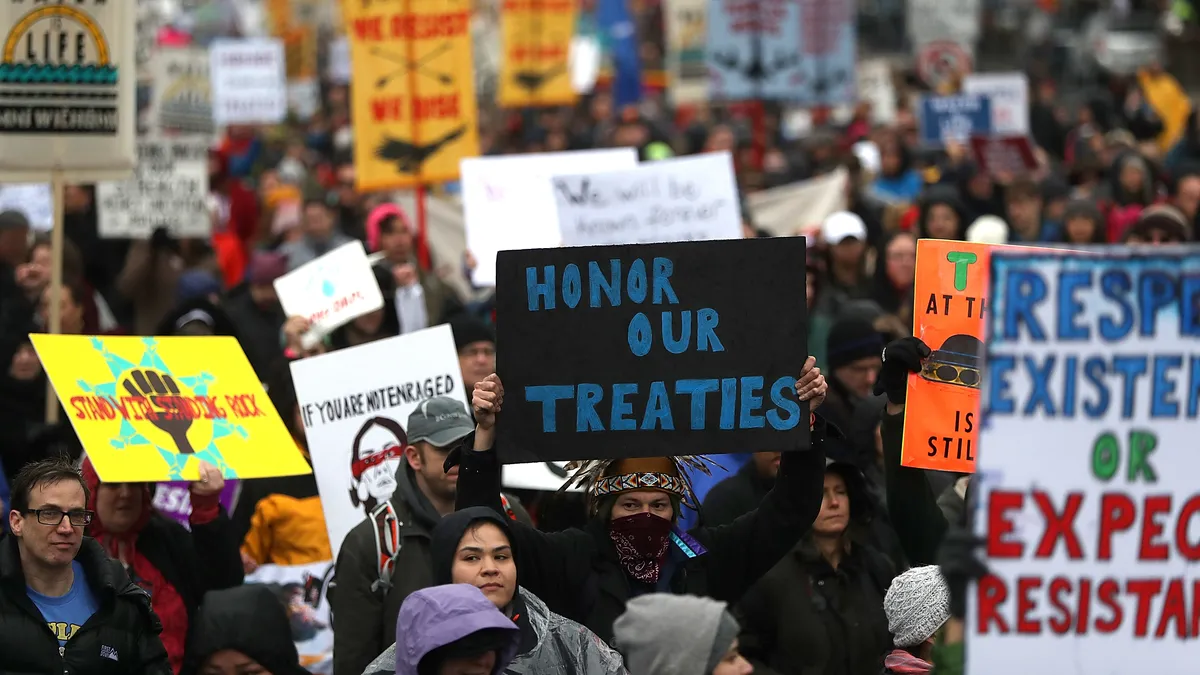
This is the twelfth installment in a series about extending the Green New Deal to confront multiple global crises. Read Part I, Part II, Part III, Part IV, Part V, Part VI, Part VII, Part VIII, Part IX, Part X, and Part XI.
California's first nations applied wild land horticulturalism to increase food and other production through pruning, seed dispersal, coppicing and burning. Meanwhile, the invading Europeans wrongly thought the lands pristine, unaffected by humans. This is according to Dina Gilio-Whitaker, who explained in a 2020 interview in Science for the People:
“The Spanish knew that the 'Indians' were lighting these fires intentionally, but they didn't understand why. They just chalked it up to all these 'crazy Indians'. They had things wrong because white (settler) supremacy infiltrates everything. White supremacy is all about the inferiorization of Native people and Native knowledge.”
Academic, writer and indigenous environmental justice advocate Gilio-Whitaker explained that today's wildfires are foremost caused by land mismanagement, and are exacerbated by the climate crisis. Only recently, non-native scientists are realizing that measures such as controlled burns increase water retention within ecosystems, mitigating wildfires.
Today, non-native scientists increasingly appreciate a holistic, indigenous framing in which everything is connected. A 2019 report by the Intergovernmental Science-Policy Platform on Biodiversity and Ecosystem Services represents a highwater mark of understanding indigenous science. It asserts we need transformative change to protect life.
Californian wildfires are a microcosm. The world is on fire, literally and figuratively, because of colonialism and capitalism. For centuries, numerous indigenous voices warned that we cannot destroy everything on the planet for capital. Yet in order to condone the colonization, extraction and genocide of indigenous peoples, they have been dehumanized, and their knowledge demonized and belittled.
Gilio-Whitaker and many experts are now calling for that indigenous understanding to drive a green transformation. This includes deploying indigenous sovereignty to manage ecosystems – moving to foster a world that respects indigenous people and life.
Deb Haaland's appointment and Biden's indigenous pledges
Joe Biden’s environmental positions have been a sea-change from his predecessor, including his early executive orders to rejoin international climate treaties, revoke the Keystone XL Pipeline and protect more indigenous areas like the Arctic National Wildlife Refuge. In Biden's presidency so far, Deb Haaland's confirmation as Interior Minister is momentous, making her the first Native American cabinet secretary.
When senators backed by millions of dollars from oil companies attacked Haaland during her successful confirmation hearing in late February, the nomination became a battleground for oil's future. And no wonder. Haaland opposes fracking, she was an early Green New Deal supporter and she protested at Standing Rock against the Dakota Access Pipeline. Yet while not denying the significance of her appointment, caution couples with optimism about the US's direction on climate.
Crucially, under Biden, federal state forces have violently suppressed water protectors, which are struggling to prevent other pipelines such as Line 3, which threatens indigenous land from Canada to Wisconsin. More than half a year into his presidency, Biden's climate pledges seem more shaky as the Energy Information Administration has predicted that U.S. oil production will continue to rise.
In northern Turtle Island – aka Canada – part of Justin Trudeau's pitch to become Prime Minister was his goal of reaching some form of indigenous “reconciliation.” Yet Trudeau’s oil-friendly policies have mimicked his predecessor – not least the militarized state response to protests in 2020 against the Coastal GasLink Pipeline, which would traverse Wet'suwet'en territory. This was dubbed Canada's Standing Rock, as resistance spread nationwide.
A Green Indigenous Deal
The Green New Deal was inspired by indigenous thinking and resistance; for example, the measure’s most prominent champion, Alexandria Ocasio-Cortez, was inspired to run for Congress after joining the protests at Standing Rock. Now, numerous indigenous voices are calling for greater ambition with a more radically expansive GND plan that could deliver a just, green transformation.
Pennelys Droz and Julian Brave Noisecat offer one indigenous articulation of a Green New Deal through the Native American NDN Collective. They assert the GND must avoid the greenwashed, net-zero language of market-oriented bureaucrats: at its core, they say, the climate plan must keep all fossil fuels in the ground.
Indigenous homelands cannot be sacrificed, whether for oil, nuclear or other industries; instead, they assert, we need green clean power and indigenous sovereignty to restore and replenish life. Meaningless “consultation” must end. In its place, nations deserve consent. Additionally, the GND needs to recognise and remedy the uneven impact of colonization.
The NDN Paper concludes with a “Defend, Develop and Decolonise” strategy, which asserts:
“To Defend, we must organize across all levels of engagement and resistance to protect our land, air, water, human and non-families, and nationhood...” and ...to Develop we must re-envision and create new systems of trade that do not extract and exploit but revitalize life...”
Their proposal is based on defense – against what must end – as well as offense, imagining what replaces it, and redefines what it means to develop.
The Red Deal offers another indigenous perspective by anti-colonialist Red Nation. It specifies many themes covered in this series for Occupy.com, including defunding the police (Part VIII), ending US-led imperialism (Part III), and keeping oil in the ground (Part X). These issues are covered in the book’s opening section, Divest: End Occupation.
Occupation is an important framing of the discussion since U.S. and European capitalism were built on the violent stealing of indigenous people’s land – a violence that is far from over. Current works on the subject highlight the way indigenous peoples, women, people of color and LGBTQ+ face the most violence from state forces and society.
The Red Deal continues: “Ours is the oldest class struggle in the Americas: [we started the] centuries-long resistance for a world in which many worlds fit.” The Red Deal is about fostering a healthy horizon, with practical bottom-up steps to get there. The second section of the book, “Heal our bodies,” advocates universal rights and access to housing, education, healthcare, free public transport, healthy food and water.
Strategies to achieve this agenda include supporting universal citizenship; joining anti-deportation and anti-militarism movements; pushing for collective housing solutions like cooperatives; and envisioning models of child-rearing beyond nuclear families. The book is a compendium about ways we can recreate the world.
Holistic politics
The Red Deal asks vital questions about degrowth, the role of care and the value of work. One underlying point, particularly useful in this series, is the way it conceptualizes how change happens. Many visions for a Green New Deal imagine a political system serving people and planet, rather than the 1%. But too often they are scant on how to wrest control from that same 1% who control business, government, the media and so on.
The Red Deal recognizes that we do not have the human power, yet, for an all-out revolution. But by defining what the distant horizon looks like and setting targets to move toward in the coming generations, it also advocates incremental change at every level of politics – from personal relationships to larger collectives and geopolitics. We cannot disengage with the state because every decision impacts life. Also crucially, we cannot rely on politicians. Change is made from the ground up.
Read Part I, Part II, Part III, Part IV, Part V, Part VI, Part VII, Part VIII, Part IX, Part X, and Part XI.


















